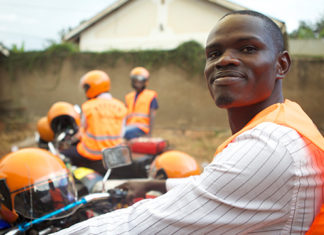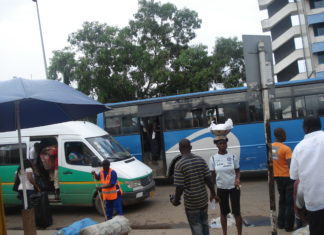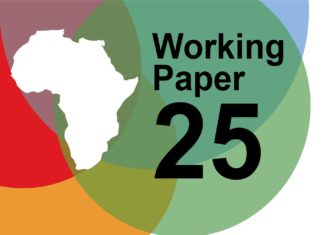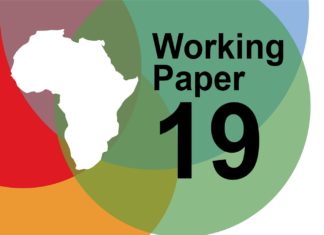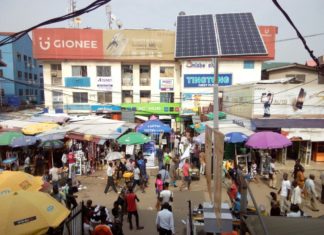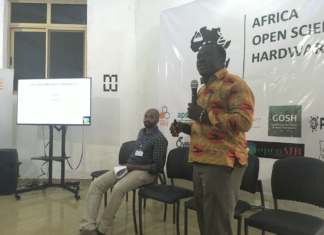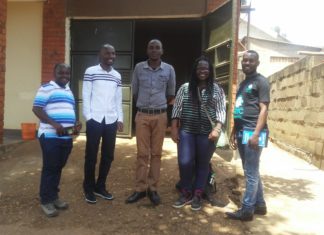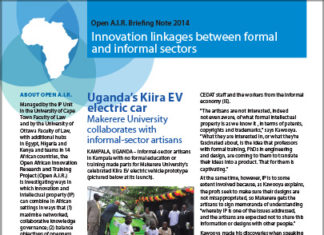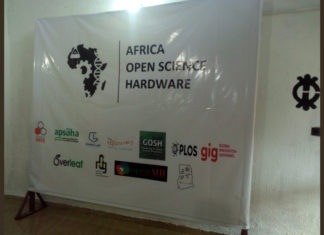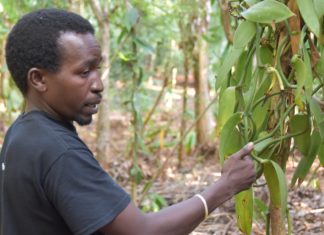Exploring Crowd-Based Capitalism in Africa’s Sharing Economy
The sharing economy has been growing at an ever-accelerating pace throughout the world as peer-to-peer networks and collaborative company models continue to pop up. The sharing economy, according to Rachel Botsman, is “an economic model based on sharing underutilized assets, from spaces to skills to stuff, for monetary or non-monetary benefits.” They often involve platforms that enable the exchange of services between peers or businesses. Arun Sundarajan explains the sharing economy somewhat differently: “What is new, in the “sharing economy,” is that you are not helping a friend for free; you are providing these services to a stranger for money.” He describes this as “crowd-based capitalism.”
Upcoming research into informal entrepreneurs
Our Open AIR researcher Dr. Erika Kraemer-Mbula is continuing her exciting research in South Africa about informal sector entrepreneurs.
Informal entrepreneurship is receiving increasing scholarly and political attention in Africa. The continent’s booming youth population calls for an unprecedented need to create income and livelihood opportunities. Besides the traditional focus on formalisation, there is a growing interest in understanding the creative processes and innovations occurring in informal enterprises. However, evidence remains scarce, and research on informal enterprises still represents a relatively new and unexplored frontier.
Foreign Direct Investment (FDI) and Learning in Ethiopia’s Textile and Garment...
Authored by : Bertha Vallejo and Tadesse Getachew Mekonnen
Abstract: Theoretically, foreign direct investment (FDI) favours industrial upgrading by allowing local firms to learn from...
The Nollywood Phenomenon: Innovation, Openness and Technical Opportunism in the Modeling...
Authored by: Chidi Oguamanam
Abstract: The Nigerian movie industry, known as Nollywood, has attracted an impressive degree of research interest since its debut in the 1990s,...
Understanding the Dynamics of Knowledge Transfer in Nigeria’s Otigba Hardware Cluster
So what is the Otigba Computer Village? Oyelaran-Oyeyinka in 2006 described it as the biggest ICT hub of West Africa – perhaps the biggest ICT market in all of Africa – because of the size and the volume of business activities carried out on a daily basis within the cluster. The research I have been conducting looks at the knowledge dynamics at play in the informal ICT businesses in the cluster, with a view to understanding how these dynamics drive informal enterprises’ innovation and scaling-up. While other studies of the cluster have evaluated the size and capacity of the cluster, the evolution of the cluster, mode of operation, performance, sustainability and constraints, there are no studies looking at how the local businesses identify new and useful knowledge. With over 5000 businesses in the cluster, there is bound to be knowledge exchange either through spillover or conscious transfer. How is this happening?
Historic Gathering of Africa’s Open Science Hardware (OSH) Innovators – the...
By Chris Armstrong
Open AIR was privileged to be a supporting partner of the inaugural AfricaOSH Summit, held 13-15 April 2018 at the Kumasi Hive...
Challenging the Meaning of Innovation: Lessons from Refugee-Founded Organizations in Kampala
There is often a limited and constricted view of African innovation, especially when it comes to refugees and internally displaced persons (IDPs). While there is the common perception that refugees on the continent are resilient, innovative, and resourceful, it is only in the sense that “one man’s trash is another man’s treasure”. Too often, refugees and IDPs are perceived as persons with only needs. The reality is that refugees and IDPs are just like everyone else and bring many skills, ideas, and innovations to the global marketplace, both the marketplace of ideas and of goods.
Innovation Linkages between Formal and Informal Sectors
Published by Open AIRPublication Date: 2014Download: Open A.I.R. Briefing Note: Innovation Linkages between Formal and Informal Sectors (360kb)
This 2014 Briefing Note highlights the findings from...
Making at AFRICAOSH Summit 2018
By Outlwile Maselwanyane
The first gathering for Africa Open Science & Hardware (AfricaOSH) was hosted by Kumasi Hive innovation hub, Kumasi, Ghana, on April 13-15...
How DIY Biology can Improve Access to Digital Agricultural Technologies
By Vipal Jain
Digital agricultural research is transforming the way crops are developed. New tools can speed up the ability to produce crops with higher...

